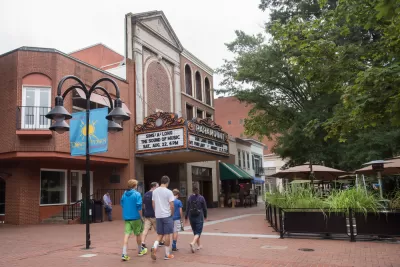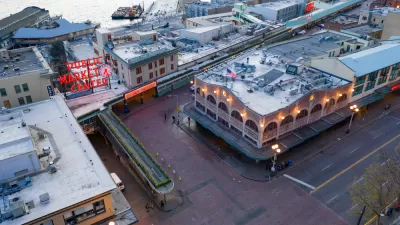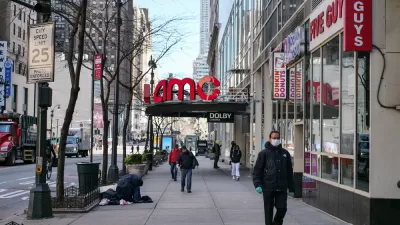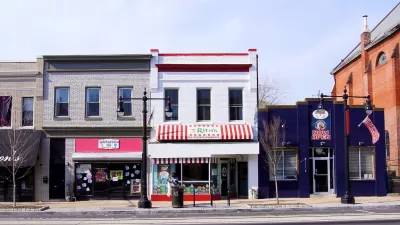The COVID-19 pandemic and massive mall-retailer closings has left millions of highly skilled workers from the retail and food and beverage industries unemployed and eager to work. Many will seek to open their own businesses in downtowns.

An article by Robert Gibbs, FASLA, for The Dirt, is sampled here. For the rest of the article, click on the link below.
Since the earliest human settlements, the retail experience has evolved to meet the needs of the public. This evolution has taken us from rural markets to towns, cities, suburban shopping malls, big box mega stores, and, more recently, the Internet. But what will retail shopping look like once COVID-19 lock downs are over and people return to the wild for their shopping experiences?
When all the dust settles, the post-pandemic era should provide a boost to downtown areas, in part due to newly unemployed but highly skilled restaurant and retail workers opening new businesses in downtowns where rent prices will trend downward.
***
Downtown shopping districts will capture traffic from fading malls
Malls will struggle in the wake of COVID-19. Being inside an enclosed bubble will not be the ideal situation for most shoppers for the foreseeable future. Morning Consult reports that 24 percent of U.S. consumers fear shopping in malls for at least the next six months due to the COVID-19 threat.
As an article about a newly reopened mall in Atlanta explains, the experience won’t be very welcoming in the near term. Play areas are roped off, water fountains covered, and stores are limiting the number of shoppers due to social distancing. Add in the inconvenience factor, and it’s clear why so many malls are facing a reckoning in the coming years.
As regional malls continue losing consumers due to changing shopping habits and fears of COVID-19, an excellent opportunity presents itself for villages, towns, and cities to regain their dominance as thriving centers for retail and entertainment.
FULL STORY: After Lockdown, New Opportunities for Downtown Shopping Districts

Alabama: Trump Terminates Settlements for Black Communities Harmed By Raw Sewage
Trump deemed the landmark civil rights agreement “illegal DEI and environmental justice policy.”

Study: Maui’s Plan to Convert Vacation Rentals to Long-Term Housing Could Cause Nearly $1 Billion Economic Loss
The plan would reduce visitor accommodation by 25% resulting in 1,900 jobs lost.

Why Should We Subsidize Public Transportation?
Many public transit agencies face financial stress due to rising costs, declining fare revenue, and declining subsidies. Transit advocates must provide a strong business case for increasing public transit funding.

Wind Energy on the Rise Despite Federal Policy Reversal
The Trump administration is revoking federal support for renewable energy, but demand for new projects continues unabated.

Passengers Flock to Caltrain After Electrification
The new electric trains are running faster and more reliably, leading to strong ridership growth on the Bay Area rail system.

Texas Churches Rally Behind ‘Yes in God’s Back Yard’ Legislation
Religious leaders want the state to reduce zoning regulations to streamline leasing church-owned land to housing developers.
Urban Design for Planners 1: Software Tools
This six-course series explores essential urban design concepts using open source software and equips planners with the tools they need to participate fully in the urban design process.
Planning for Universal Design
Learn the tools for implementing Universal Design in planning regulations.
Caltrans
Smith Gee Studio
Institute for Housing and Urban Development Studies (IHS)
City of Grandview
Harvard GSD Executive Education
Toledo-Lucas County Plan Commissions
Salt Lake City
NYU Wagner Graduate School of Public Service





























